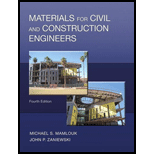
Pearson eText for Materials for Civil and Construction Engineers -- Instant Access (Pearson+)
4th Edition
ISBN: 9780137505586
Author: Michael Mamlouk, John Zaniewski
Publisher: PEARSON+
expand_more
expand_more
format_list_bulleted
Concept explainers
Textbook Question
Chapter 1, Problem 1.50QP
Briefly discuss the concept behind each of the following measuring devices:
a. LVDT
b. strain gauge
c. proving ring
d. load cell
Expert Solution & Answer
Want to see the full answer?
Check out a sample textbook solution
Students have asked these similar questions
Note: (please show handwritten answers, and no AI usage !)
Provide a clear, step-by-step handwritten solution (without any detailed explanations). Ensure the work is simplified and completed manually, adhering to expert-level accuracy. Refer to the provided image for clarity and ensure all calculations are double-checked for correctness before submission. Thank you!.
Question 1:
A cylindrical soil sample is connected to two water reservoirs:
a) Determine the pressure, elevation, and total head at a point one meter above the bottom of the sample (point A).
b) Calculate the pore pressure and effective stress at point A if the soil has a saturated unit weight of 18.7kN/m^3. c) Determine the water flow rate though the sample if the soil has a coefficient of permeability of 0.19 cm/s and the radius of the sample is 20 mm.
d) Is it possible for the soil to reach the “quick condition”(zero effective stress) by raising the level of the water in the upper reservoir? Why or why not?.
Question…
Note:
Please provide a clear, step-by-step simplified handwritten working out (no explanations!), ensuring it is done without any AI involvement. I require an expert-level answer, and I will assess and rate based on the quality and accuracy of your work and refer to the provided image for more clarity. Make sure to double-check everything for correctness before submitting thanks!.
Questions 1:
A clay rich soil is totally saturated, has a bulk density of 2.12 g/cm3, and a void ratio of 0.33.
a) Draw the full three phase diagram for this soil including all the volume and mass quantities.
b) Determine the density of the soil solids.
c) Determine the total density of the soil if the saturation was reduced to 50%.
Question 2:
A soil sample was tested yielding the following grain-size distribution chart: (refer to the image provided)
The soil fines (inorganic) were also tested and had a liquid limit of 76 and a plastic limit of 49
Determine the coefficients of uniformity and curvature.…
Note:
Provide a clear, step-by-step handwritten solution (without any detailed explanations). Ensure the work is simplified and completed manually, adhering to expert-level accuracy. Refer to the provided image for clarity and ensure all calculations are double-checked for correctness before submission. Thank you!.
Question 1:
A cylindrical soil sample is connected to two water reservoirs:
a) Determine the pressure, elevation, and total head at a point one meter above the bottom of the sample (point A).
b) Calculate the pore pressure and effective stress at point A if the soil has a saturated unit weight of 18.7kN/m^3. c) Determine the water flow rate though the sample if the soil has a coefficient of permeability of 0.19 cm/s and the radius of the sample is 20 mm.
d) Is it possible for the soil to reach the “quick condition”(zero effective stress) by raising the level of the water in the upper reservoir? Why or why not?.
Question 2:
A new structure is planned to be constructed in…
Chapter 1 Solutions
Pearson eText for Materials for Civil and Construction Engineers -- Instant Access (Pearson+)
Ch. 1 - State three examples of a static load application...Ch. 1 - A material has the stressstrain behavior shown in...Ch. 1 - A tensile load of 50.000 lb is applied to a metal...Ch. 1 - A tensile load of 190 kN is applied to a round...Ch. 1 - A cylinder with a 6.0 in. diameter and 12.0 in....Ch. 1 - A metal rod with 0.5 inch diameter is subjected to...Ch. 1 - A rectangular block of aluminum 30 mm 60 mm 90...Ch. 1 - A plastic cube with a 4 in. 4 in. 4 in. is...Ch. 1 - A material has a stressstrain relationship that...Ch. 1 - On a graph, show the stressstrain relationship...
Ch. 1 - The rectangular block shown in Figure P1.11 is...Ch. 1 - The rectangular metal block shown in Figure P1.11...Ch. 1 - A cylindrical rod with a length of 380 mm and a...Ch. 1 - A cylindrical rod with a radius of 0.3 in. and a...Ch. 1 - A cylindrical rod with a diameter of 15.24 mm and...Ch. 1 - The stressstrain relationship shown in Figure...Ch. 1 - A tension test performed on a metal specimen to...Ch. 1 - An alloy has a yield strength of 41 ksi, a tensile...Ch. 1 - Prob. 1.21QPCh. 1 - Figure P1.22 shows (i) elasticperfectly plastic...Ch. 1 - An elastoplastic material with strain hardening...Ch. 1 - A brace alloy rod having a cross sectional area of...Ch. 1 - A brass alloy rod having a cross sectional area of...Ch. 1 - A copper rod with a diameter of 19 mm, modulus of...Ch. 1 - A copper rod with a diameter of 0.5 in., modulus...Ch. 1 - Define the following material behavior and provide...Ch. 1 - An asphalt concrete cylindrical specimen with a...Ch. 1 - What are the differences between modulus of...Ch. 1 - Prob. 1.33QPCh. 1 - A metal rod having a diameter of 10 mm is...Ch. 1 - What is the factor of safety? On what basis is its...Ch. 1 - Prob. 1.36QPCh. 1 - Prob. 1.37QPCh. 1 - A steel rod, which is free to move, has a length...Ch. 1 - In Problem 1.38, if the rod is snugly fitted...Ch. 1 - A 4-m-long steel plate with a rectangular cross...Ch. 1 - Estimate the tensile strength required to prevent...Ch. 1 - Prob. 1.42QPCh. 1 - Briefly discuss the variability of construction...Ch. 1 - In order to evaluate the properties of a material,...Ch. 1 - A contractor claims that the mean compressive...Ch. 1 - A contractor claims that the mean compressive...Ch. 1 - Prob. 1.47QPCh. 1 - Prob. 1.48QPCh. 1 - Prob. 1.49QPCh. 1 - Briefly discuss the concept behind each of the...Ch. 1 - Referring to the dial gauge shown in Figure P1.51,...Ch. 1 - Repeat Problem 1.51 using the dial gauge shown in...Ch. 1 - Measurements should be reported to the nearest...Ch. 1 - During calibration of an LVDT, the data shown in...Ch. 1 - During calibration of an LVDT, the data shown in...
Knowledge Booster
Learn more about
Need a deep-dive on the concept behind this application? Look no further. Learn more about this topic, civil-engineering and related others by exploring similar questions and additional content below.Similar questions
- Note: Provide a clear, step-by-step, simplified handwritten solution (no explanations), ensuring it is completed without any AI involvement. The solution must demonstrate expert-level accuracy and will be evaluated for its quality and precision. Please refer to the provided image for additional clarity. Double-check all calculations for correctness before submission. Thank you!. Question 1: (refer to the image for visual understanding) For the soil element shown on the right: a) Draw the Mohr’s circle for this case b) Find the major and minor principal stresses c) Find the normal and shear stresses on plane AB. Question 2: (refer to the image) A soil sample in a triaxial test with a cell pressure of 100 kPa fails when the vertical stress reaches 400 kPa. The resulting failureplane is observed to dip 60 degrees from horizontal (see figure). Assume that the soil is drained during the test, i.e. there is no pore pressure. a) Determine the friction angle of the soil. Hint: draw the…arrow_forwardPlease solve all pointsarrow_forward1: find out the optimal solution: 1- Reliability Function 2- Serial Configuration 3- M.T.T.F 4- Probability distribution function (P.D.F) 5- Failure rate function :calculate the reliability of the system for the following Figure 0.90 0.80 0.95 0.80 0.80 0.94) 0.80 : A system containing four connected compounds in series, each one has a distribution and its parameters as shown in the table below Component Scale parameter Shape parameter 1 100 1.20 2 150 0.87 3 510 - 1.80 4 720 1.00arrow_forward
- Time: 1. Hrs During the last ten days: In one of the productive operations, the electronic control calculator equipped with No. of defects for a specific volume of samples as shown: 10 9 8 7 6 5 4 3 2 1 Day No. 6673 6976 7505 6991 7028 6960 7916 7010 6591 7350 Total No. 53 55 60 58 16 22 49 48 64 17 Defect No. DRAW THAT & CHOOSE THE BEST A-P chart. B-C chart 1. Key functions of quality control include: A) Control of design, materials received and products and conduct studies of operations B-Design and develop reasonable specifications C) The use of equipment that gives the required accuracy D) Provide appropriate screening equipment 2. The basic principles of critical pathways are: A-fragmentation of the system to the objectives of the secondary clear and specific B-Drawing the network diagram C-Finding the critical path D- All of the above 3- The production system is the following: A-An integral part of the plant's completion B-An effective system to integrate the efforts of various…arrow_forwardPlease solve all pointsarrow_forwardPlease solve all pointsarrow_forward
- Please solve the question by hand with a detailed explanation of the steps.arrow_forward) We started a new production process and its study gave the total deviations The standard value (for 25 samples of the product, sample size 4) is .105 .Calculate the capacity of this process The product specification limits are: 6.30 = LSL 6.50 = USL Standard deviation in a manufacturing system is 0.038 = We made improvements to the system and the deviation has become Standard 0.030 = σ What is required is to calculate the estimated coefficient before and after the operation Optimization. What is your conclusion? : A find out the optimal solution: 1-Average Outgoing Quality AOQ 2- operating Characteristics Curve 100% Inspection 3-Acceptable Quality level 4- Average outgoing Quality AOQ 5- Capability Index CPKarrow_forwardFollowing are the data of gauge and discharge collected at a particular section of the river by stream gauging operation. Gauge reading Discharge Gauge reading Discharge (m) (cms) (m) (cms) 7.65 15 8.48 170 7.70 30 8.98 400 7.77 57 9.30 600 7.80 39 9.50 800 7.90 60 89 10.50 1500 7.91 100 11.10 2000 8.08 150 11.70 2400 1. Develop a rating curve for this stream at this section for use in estimating the discharge for a known gauge reading and fit a linear regression equation for use in estimation of stage for a known value of discharge. Use a value of 7.50 as the gauge reading corresponding to zero discharge. (20 pts) Equation 1 arith 2. What is the coefficient of correlation of the derived relationship? (10 pts) R2² arith Equation 2 log R2 log 3. Determine the stage for a discharge of 3500 cms (5 pts) 4. Determine the discharge for a stage of 15 m (5 pts) NB Do both arithmetic and logarithmic plotsarrow_forward
- Q2/ A (2m x 4 m) rectangular flexible foundation is placed above the ground surface (G.S) for two layers of clay, each layer 10 m thick. The modulus of Elasticity (E.) of the upper layer is 13 MN/m² and that of the lower layer is 15 MN/m². The Poisson ratio is (u, = 0.6) for the two layers. The pressure (stress) of 100 kN/m²is distributed along the surface of foundation. Determine the rigid immediate settlement at the corner of the foundation using Elastic theory method?arrow_forwardQ1/ Find the maximum allowable load for a square foundation (3 m x 3 m) placed vertically in cohesive soil? (Use Terzaghi equation) Note: Yt=Yeat=18 kN/m³ Depth of foundation = 1.5 m Depth of water table below the ground surface = 0.8 m Factor of safety 3 C=20 Yw = 10 kN/m³ = No vertical or inclined loadsarrow_forwardP.3.3 Oil of sp.gr. 0.9 flows through a vertical pipe (upwards). Two points A and B one above the other 40 cm apart in a pipe are connected by a U-tube carrying mercury. If the difference of pressure between A and B is 0.2 kg/cm², 1- Find the reading of the manometer. 2- If the oil flows through a horizontal pipe, find the reading in manometer for the same difference in pressure between A and B. Ans. 1- R= 0.12913 m, 2- R = 0.1575 m,arrow_forward
arrow_back_ios
SEE MORE QUESTIONS
arrow_forward_ios
Recommended textbooks for you
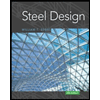 Steel Design (Activate Learning with these NEW ti...Civil EngineeringISBN:9781337094740Author:Segui, William T.Publisher:Cengage Learning
Steel Design (Activate Learning with these NEW ti...Civil EngineeringISBN:9781337094740Author:Segui, William T.Publisher:Cengage Learning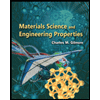 Materials Science And Engineering PropertiesCivil EngineeringISBN:9781111988609Author:Charles GilmorePublisher:Cengage Learning
Materials Science And Engineering PropertiesCivil EngineeringISBN:9781111988609Author:Charles GilmorePublisher:Cengage Learning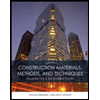 Construction Materials, Methods and Techniques (M...Civil EngineeringISBN:9781305086272Author:William P. Spence, Eva KultermannPublisher:Cengage Learning
Construction Materials, Methods and Techniques (M...Civil EngineeringISBN:9781305086272Author:William P. Spence, Eva KultermannPublisher:Cengage Learning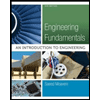 Engineering Fundamentals: An Introduction to Engi...Civil EngineeringISBN:9781305084766Author:Saeed MoaveniPublisher:Cengage Learning
Engineering Fundamentals: An Introduction to Engi...Civil EngineeringISBN:9781305084766Author:Saeed MoaveniPublisher:Cengage Learning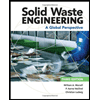 Solid Waste EngineeringCivil EngineeringISBN:9781305635203Author:Worrell, William A.Publisher:Cengage Learning,
Solid Waste EngineeringCivil EngineeringISBN:9781305635203Author:Worrell, William A.Publisher:Cengage Learning, Principles of Foundation Engineering (MindTap Cou...Civil EngineeringISBN:9781337705028Author:Braja M. Das, Nagaratnam SivakuganPublisher:Cengage Learning
Principles of Foundation Engineering (MindTap Cou...Civil EngineeringISBN:9781337705028Author:Braja M. Das, Nagaratnam SivakuganPublisher:Cengage Learning

Steel Design (Activate Learning with these NEW ti...
Civil Engineering
ISBN:9781337094740
Author:Segui, William T.
Publisher:Cengage Learning

Materials Science And Engineering Properties
Civil Engineering
ISBN:9781111988609
Author:Charles Gilmore
Publisher:Cengage Learning

Construction Materials, Methods and Techniques (M...
Civil Engineering
ISBN:9781305086272
Author:William P. Spence, Eva Kultermann
Publisher:Cengage Learning

Engineering Fundamentals: An Introduction to Engi...
Civil Engineering
ISBN:9781305084766
Author:Saeed Moaveni
Publisher:Cengage Learning

Solid Waste Engineering
Civil Engineering
ISBN:9781305635203
Author:Worrell, William A.
Publisher:Cengage Learning,

Principles of Foundation Engineering (MindTap Cou...
Civil Engineering
ISBN:9781337705028
Author:Braja M. Das, Nagaratnam Sivakugan
Publisher:Cengage Learning
Mechanical Properties of Material; Author: Civil Engineering;https://www.youtube.com/watch?v=UZkUvWiNeDs;License: Standard YouTube License, CC-BY